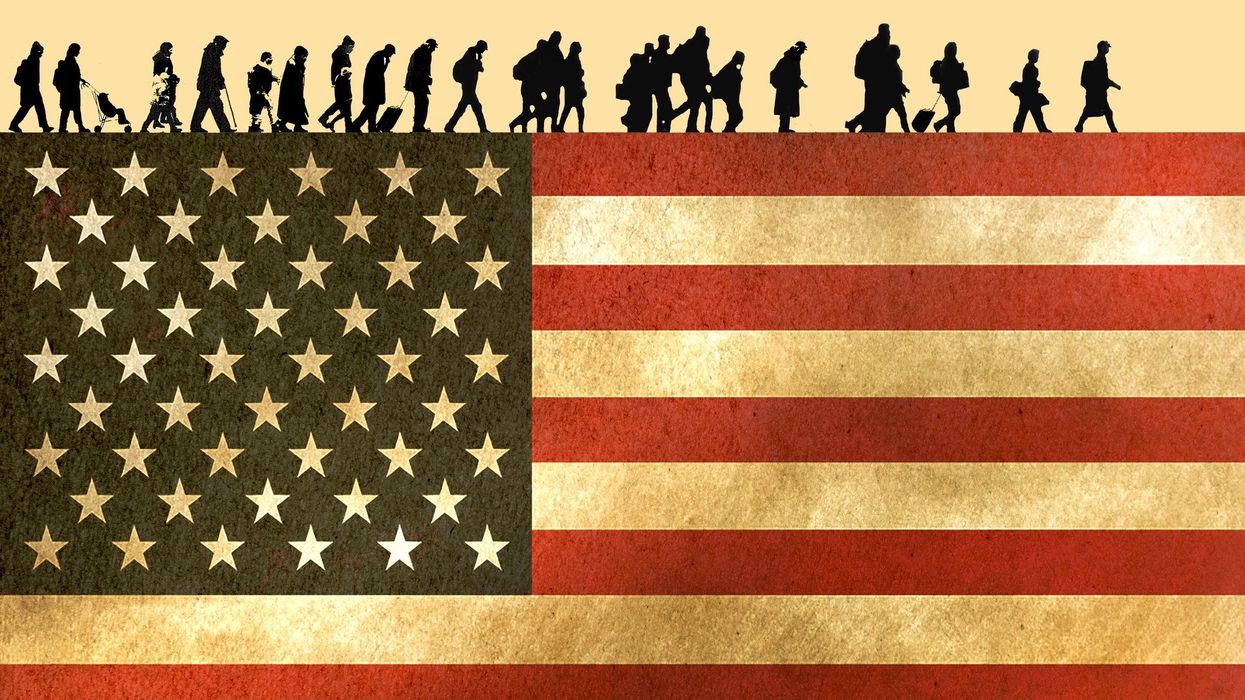Ali’s name has been changed to protect his identity and ensure the safety of his family, who remain in Afghanistan. The name of the Colorado nonprofit featured in this story has also been withheld out of concern for the potential danger to the refugee clients it serves.
Ali knew it was time to flee on August 15, 2021. The day the Taliban returned to power in Afghanistan, he and his family became a vulnerable minority overnight. Fearing for their safety, they fled – first to Iran, then Qatar, then Japan – before ultimately resettling in Colorado in 2023.
But safety didn’t mean stability.
Like many refugees, Ali arrived during a time of mounting uncertainty, not just in his own life, but in the American policies meant to support people like him.
Depression crept in. The hotel walls began to close around him. He wasn’t quite sure where to start.
“I needed to go out, to be with the people, to make a new life, to make a new opportunity to work here. I didn't have a single connection here, except one friend,” he said.
That’s when a lifeline came in the form of a Colorado-based nonprofit organization staffed largely by former refugees themselves.
As federal support systems for refugees remain fragmented, underfunded, or entirely absent, community-led organizations like this one have become vital. The nonprofit goes beyond resettlement, creating community, dignity, and long-term pathways to self-sufficiency.
Food was central to his recovery and is central to the organization’s work.
Ali first came to the group through a food access program that provides culturally relevant produce to refugee families. Some of the crops featured in the harvest – including tomatoes, peppers, eggplants, spinach, potatoes, radishes, and onions – are even grown by refugee farmers.
He began volunteering on the five-acre community farm twice a week. He also delivered surplus food from local stores and farms to the nonprofit’s food share program, ensuring nothing went to waste.
That farm became more than a patch of land. It became therapy.
The program, which fed over 12,000 people in 2023 alone, is part of a growing movement to offer more than just basic survival. Studies show that culturally appropriate food access supports not only physical health but also psychological resilience and social integration.
Now, Ali volunteers with the same organization that helped him. He knows how hard it is to navigate those first months. He’s lived it.
“I experienced that feeling, and I know how valuable those supports are from Project Worthmore,” he said. “It might not be too big, like a pack of vegetables and fruit, but that pack of vegetables and fruit is so valuable.”
While the nonprofit that helped Ali remains localized, its work is one of many refugee-led and refugee-focused organizations across the country: the International Institute of St. Louis in Missouri, Refugee Federation Service Center in Washington, Refugee Assistance Alliance in Florida, and Global Refuge in Maryland are just a few of the 374 in the U.S.
Yet the reach of these organizations is not without limits. These groups operate with limited funding, minimal political power, and increasing pressure to do more as federal programs recede.
Blake Hamilton, president and CEO of the International Institute of St. Louis (IISTL), believes immigrants and refugees need access to these basic services now more than ever.
He pointed to the One Big Beautiful Bill Act, which restricts refugees’ access to food aid, like the Supplemental Nutrition Assistance Program (SNAP). This paves the way for an increase in food assistance, which many refugees, like Ali, need access to when they first arrive.
The IISTL’s food pantry, which operates two hours a day, four days a week, served over 1,100 individuals this June. Hamilton warns that the burden on community-based food aid will likely intensify with the new federal provisions.
The St. Louis advocate emphasizes the distinction between the survival and thriving of refugee populations. It’s exactly what Ali had to conquer.
Despite his progress, Ali still worries about his safety every day. He, like many across the country, fears losing his legal protections and being detained by increasingly active immigration authorities.
Ali noted that others like him are focused on the necessities.
“This focus on basic needs is where more and more organizations like ours are having to turn their attention, which is troubling and challenging,” Hamilton said. “We were focused on getting people to college, helping people access careers, and really, these basic things need to be tended to before folks start focusing on those grander ideals and goals now.”
And yet, he still flourished.
For Ali, the connection to the land and food became an extension of his own expertise. The sense of belonging allowed him to dial in on what he loved. He found more purpose.
Now working as a research associate at Colorado State University, he has applied his academic background to support the farm that once relied on him. After observing the nonprofit’s high irrigation costs, he began experimenting with methods to reduce water use and control weeds.
His techniques proved so effective that they’re now part of the farm’s daily operations.
“Being a refugee doesn't mean that we will be unable to do our best for the new community or for the new country,” he said. “At the beginning, refugees will face some difficulties to find their way, but once we find ourselves in the new community, we will be more helpful for the community. We can do our best, stand on our own feet, and bring support for others.”
In the U.S., Ali also witnessed firsthand the issue of food insecurity in his community.
It was then that he taught his children and family how to bring the seeds they grew to their kitchen table. At home, they cook meals with the food they grow together: dishes that remind them of the life they left behind, and the new one they’re building.
He encourages those who struggle to find comforting foods to follow in his footsteps.
Hamilton sees transformations of communities like these every day. It only happens when our communities are welcoming and inclusive.
And for him, the contributions of refugees and immigrants aren’t just stories of resilience.
They’re a source of shared strength.
“The idea that we can turn suffering and devastation into opportunity and growth is magical,” he said. “It's a great reminder of how much we have benefited from welcoming refugees and immigrants. We benefited 30 years ago, and we continue to benefit to this day.”
Ali hopes others find the same chance and rebuild what he did.
“[The nonprofit] helped me not only financially, but also mentally. I found peace here,” Ali said. “When we support them (refugees), we save our community, and we save some people in our community.”
To learn more about refugee resettlement assistance in your area, visit the Office of Refugee Resettlement website for resources and local contacts.Layla Halilbasic is an incoming junior at Webster University in St. Louis and a cohort member with the Fulcrum Fellowship.
The Fulcrum is committed to nurturing the next generation of journalists. To learn about the many NextGen initiatives we are leading, click HERE.





















